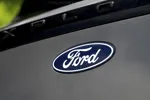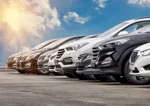Review
With the exception of petrol city cars, values for all sectors are under increasing pressure but larger, high-value cars have suffered the most.
Across 11 sectors, petrol has fallen more than diesel in six, mostly in family cars (MPV, mini-MPV and upper/lower medium).
The fall in higher value cars is not too surprising.
As consumers rein in their spending, this sector always bears the brunt of any economic uncertainty.
Running alongside fears of a recession, are crippling fuel price rises and threats of higher VED.
Executive cars
Looking at executive cars in detail, the overall movement from July into August is down 6.2% for executive and 5.3% for small executive.
The variance of movement from petrol to diesel is surprisingly narrow.
In executive, petrol derivatives have moved down 6.1% against diesels falling back 6.5%.
It’s the same in small executive, with petrol down 5.1% and diesel falling 5.6%.
In larger sectors the growing divergence between petrol prices and diesel prices reflects significantly in the prices people will pay.
When we look at specific models it is noteworthy that the vehicles in this sector are flagship models.
Volkswagen Phaeton, Audi A6 Avant and BMW 7 Series all fell greater than 10%, many by significantly more.
At auction many of the cars offered for sale in this sector are not even receiving a bid.
This month’s trend is really only a continuation of how the executive sectors have performed this year.
The most positive performance in this sector comes from the old-look Mercedes C-Class.
Although still falling in value by 3%, it appears to have been held up by the introduction of the new model, which makes this range seem very good value for money, particularly as most are very well equipped.
The question is whether these cars have found their level and, if not, when it will be?
The recent fall in fuel prices will help and if it continues there will no doubt be a slowing in the decline.
However, there is no certainty that this will happen and until there is, it is unlikely that buyers will be making speculative forays into the market for these cars for the foreseeable future.
Most of these cars head straight for the business user and this means changes to company tax has a significant impact on the market.
Increased VED
The Chancellor has continued in his attempt to change behaviour through tinkering with tax.
Increased VED rates and changes to write down allowances mean that there will be less of these cars around in the future and this will have the effect of firming prices through reduced demand.
That is a long way off, though.
So, unless there is a major upturn in the confidence of the economy to ride the storm or fuel prices plummet there will be continued pressure.
There is a positive side, though, particularly for those able to cope with higher fuel costs.
People who don’t clock up so many miles are able to snap up a serious bargain with almost every taste catered for.
Most of the cars in this sector have luxury as standard and an option list with every box ticked.
Alternatively LPG is 60p per litre and a conversion can cost around £1,500.
Although this is not a researched view, the current downturn might offer greater opportunities for the LPG conversion trade in view of the growing affordability of heavy 4x4s and other large-engine cars.
Factsheet
No information available.












